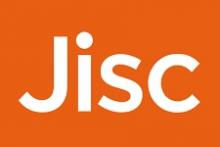Where’s the policy and financial support for OA books?

Ros Pyne
Ros Pyne explores findings from a collaborative white paper with COARD into the geographic reach of OA book scholarship
The architects of open access (OA), gathering in Budapest back in 2003, intended that it should ‘accelerate research, enrich education, share the learning of the rich with the poor and the poor with the rich, [and] make this literature as useful as it can be’. Typically when we talk about OA, the facts, the stats, the analysis focus on OA journals. But where are we with the drive towards OA for books? Does OA truly help to increase and, critically, to diversify the readership of scholarly books? And if gold OA is achieving these benefits for scholarly books, why aren’t more funders engaging?
Being able to demonstrate the benefits of OA for books can be powerful in changing attitudes. For authors who are considering whether to publish their books OA, the possibility of reaching a broader and more diverse readership is often an important factor. For funders, too, who are considering whether to expand OA policies and funding to books, understanding the effect of OA can be critical. The challenge – there is limited research on this topic and as such, while anecdotally we often hear of OA books achieving a broad readership, the evidence base to demonstrate this is still somewhat limited.
Earlier this year, we commissioned Collaborative Open Access Research & Development (COARD) to explore the effects of OA on the geographic reach of scholarly books. Collectively, we were interested in understanding where OA books were being read, and how patterns of usage between OA and non-OA books differed between countries and regions. In particular, was OA publication leading to increased readership in countries that are traditionally underrepresented in the production and use of scholarly research?
The findings are compelling. COARD’s analysis shows that OA has a robust effect on the number of downloads, geographical diversity of downloads, and citations of books. The effect was seen for all disciplinary groupings, in HSS and STM, across all three years of publication in the dataset, for all types of book (monographs, contributed volumes, and mid-length books) and for every month after publication. OA is, in other words, making a substantial difference to the reach of books and their authors.
Downloads of OA books in the study were on average 10 times higher than those of non-OA books, and citations of OA books were 2.4 times higher on average - an even larger OA effect than we found in our previous research in this area. In our new analysis, downloads of OA books from the open web were generally around double those from institutional network points, suggesting that OA may also be helping books to reach a more diverse readership.
OA books in the study had a greater proportion of usage in a wider range of countries. They were downloaded in 61 per cent more countries than non-OA books. Importantly, OA books had higher usage in low-income or lower-middle-income countries, including a high number of countries in Africa. Analysis using the Gini coefficient disparity index showed that OA books have quantitatively greater geographic diversity of downloads.
Books that contained the names of countries and regions in their title generally showed enhanced usage in those regions, and the effect was most apparent for Latin America and Africa. This effect was much stronger for OA books. That is, not only is OA enhancing usage in countries under-represented in global scholarship, it is also enhancing the global usage of scholarship about those countries.
Interest in OA for books has been increasing in recent years. Each year more publishers have implemented more OA book options. A wave of new university presses and academic-led presses have launched that focus on OA books. Importantly, funders are now starting to engage with OA for books. 2020 has seen important developments: UK Research and Innovation (UKRI) is consulting on introducing an OA mandate for monographs, and the Dutch Research Council (NWO) released a new funding programme for OA books and have committed to including monographs in their National Plan for Open Science. COAlition S have also said they will release guidance on how Plan S applies to monographs by the end of 2021. However, despite these developments, as of mid-2020 few research funders provide financial support to enable immediate OA for books, and analysis by Digital Science shows that only a small proportion of scholarly books are published OA.
If funders and policymakers do not actively support OA for books, the humanities and social sciences, which most rely on the scholarly monograph to publish their original research, risk being left behind. Our research shows that immediate OA on the publisher’s platform brings significant benefits to scholarly books, both in the number of citations and downloads, and in the diversity of location of those downloads, helping to unlock a latent readership. These results provide a powerful argument for increasing policy and financial support for OA books.
• Ros Pyne is director for OA books and book policies at Springer Nature










